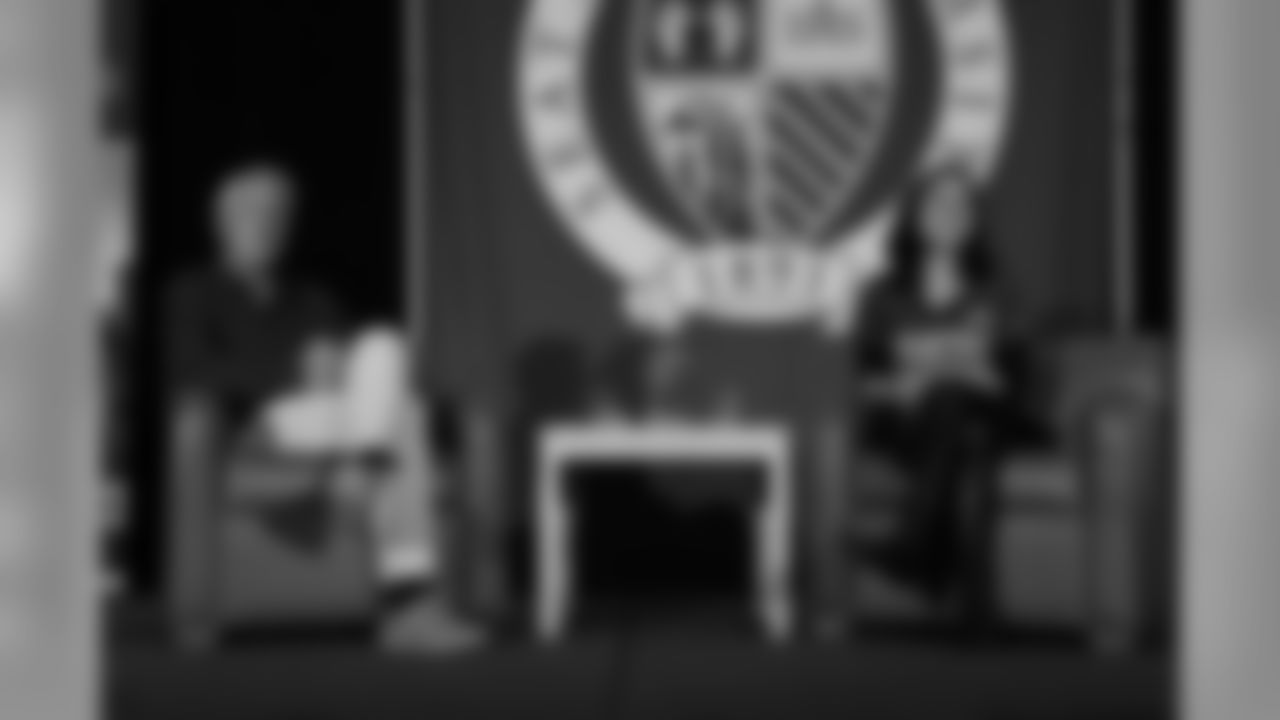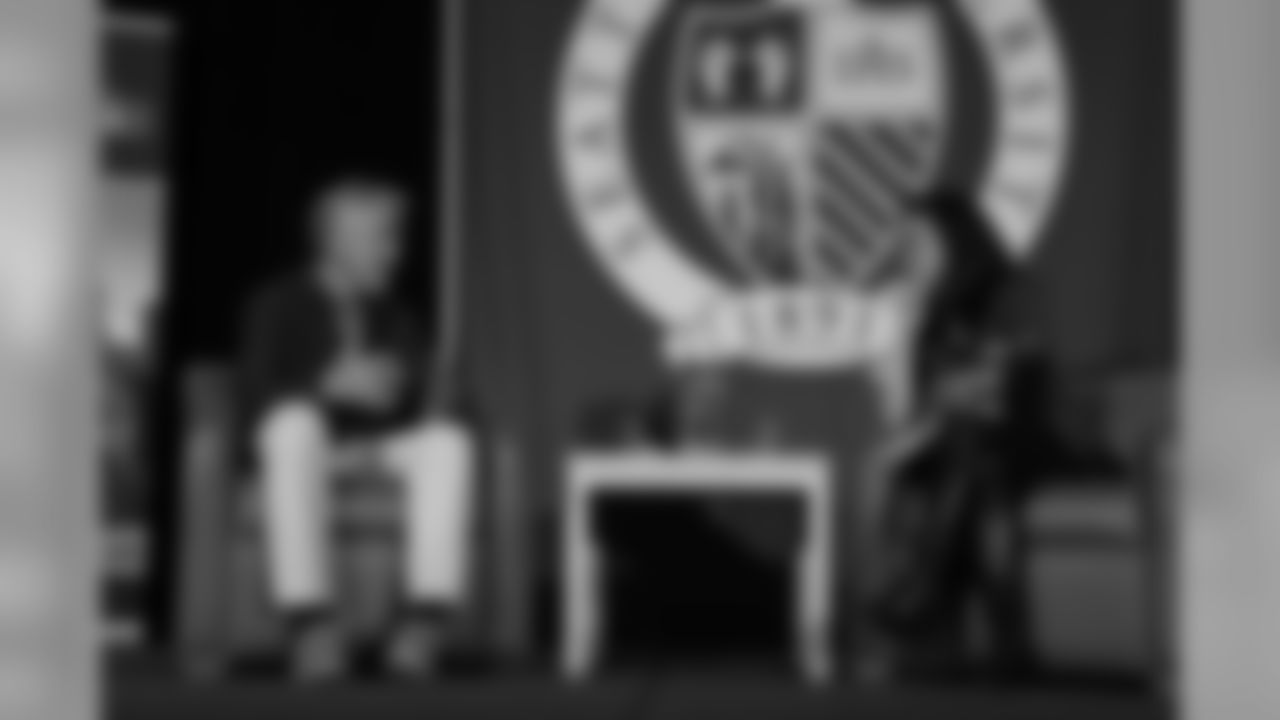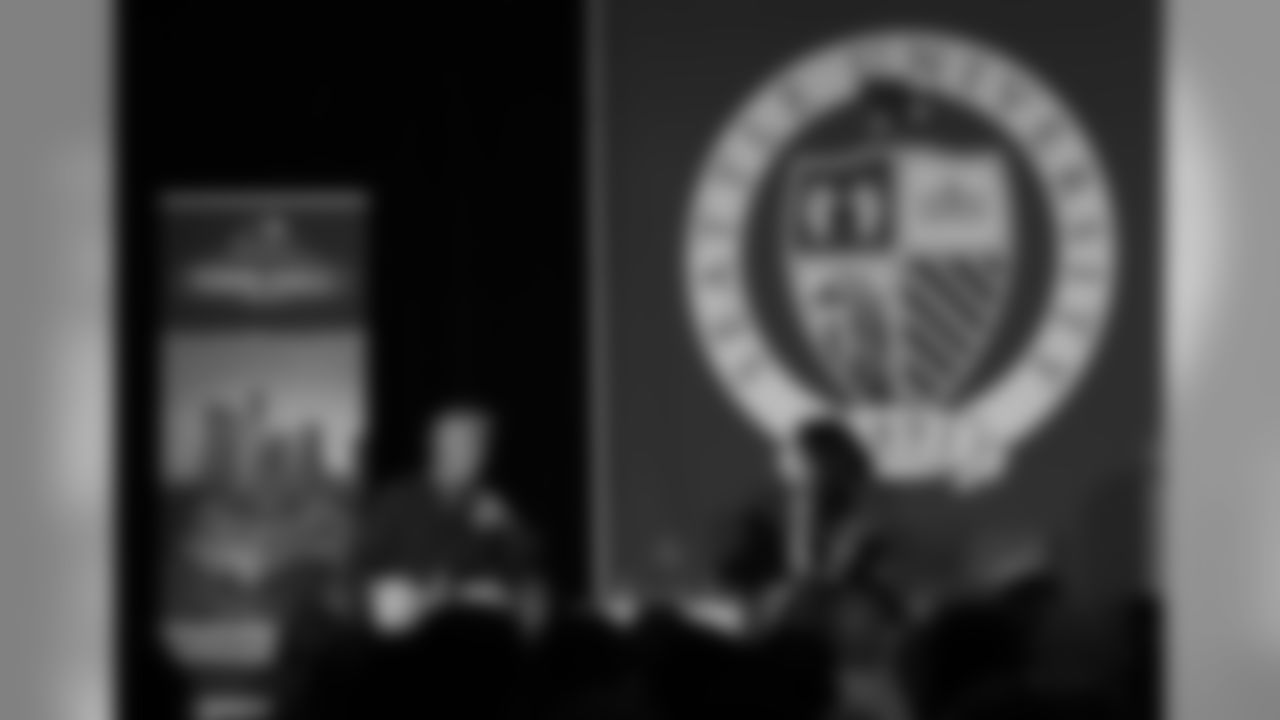With the NFL draft in the rearview mirror and free agency having slowed down, and with training camp and the start of the season still a ways away, this is the time of year when Seahawks coach Pete Carroll likes to broaden his horizons.
And that's the short way of explaining why a Super Bowl-winning coach was on stage at Seattle University with a University of Pennsylvania psychology professor for a town hall event to promote Dr. Angela Duckworth’s new book, “Grit: The Power of Passion and Perseverance."
The full story for how Carroll ended up forming a friendship with Duckworth dates back to 2013 when Carroll, while in broadening-his-horizons mode, watched a video of Duckworth’s TED Talk about grit, the focus of her work. Duckworth's talk didn't have anything to do with sports, but Carroll felt like he was watching this stranger on an internet video talk about his football team.
What Duckworth was talking about when it comes to perseverance and passion weren't necessarily new ideas to Carroll, but they helped him put clearer language to what he is trying to build in his program. It was as if a lightbulb went off in Carroll's head, the switch having been flipped by a woman he had never met and who admittedly knew almost nothing about football at the time.
"That's exactly how it was," Carroll said before sitting down with Duckworth for a back-and-forth discussion that lasted more than an hour. "When I first heard her on a TED Talk, I thought she was talking about our stuff. I was really enthused, because it just gave a new look and new language to add to something we've been trying to explain and work towards all along. Then when I talked to her—I called her pretty quickly after I saw that—we got going and talked, and it just made more and more sense. It has been a really fun discovery. She's working so hard at it and is after this whole concept 24/7, so by staying in contact, we can stay in touch with what's going on and what's new and current and all of that."
Carroll reached out to Duckworth, who later would visit the Seahawks and talk to players and team employees. The two have formed a strong relationship since then, bouncing ideas off of each other in energetic—and fast-paced—discussions over the past few years. On Thursday, that conversation continued at Seattle U with Carroll on hand to support Duckworth's book.
"I'm really happy to be here with her," Carroll said. "There are so many things going on, so many conversations to carry on, and they all go in so many directions, it's hard for us to get enough time to zero in on stuff. She goes a million miles an hour, and she has done so many wonderful things in this area, and she is on to a topic that's really important for us to understand, so to support her is really easy. She has always encouraged our dialogue too. It has been a healthy and fun relationship.
"She has such a big personality and attitude, she's really fun to work with. She goes really fast with her thoughts and ideas, which is just fine with me, so we'll cover a lot of stuff in a short amount of time. She's got a real sense of urgency about discovery as well, so we see things in a similar fashion in that regard as well."
Whether it's discussing grit with Duckworth or digging into one of this offseason's projects, David Brooks' book, "The Road to Character," Carroll sees expanding his focus beyond Xs and Os and roster construction as a huge part of his job.
"It's really important this time of year," he said. "This is the time when I'm most active. It's just competing, really, just learning and trying to figure stuff out. I always feel like I'm looking at issues and concerns and trying to understand them better, so wherever that takes me, I'm going to pursue it aggressively, particularly when the stuff rings true and seems to make sense. I think it's really important. It keeps me going and keeps me current."
For Duckworth grit became the focus of her studies after teaching seventh-grade math in New York City public schools. What Duckworth saw was that sometimes her smartest students weren't the best performers. From there, she began a quest to understand what characteristics lead to success in any given field. What she came up with was grit.
"When I say grit, I don't just mean old-fashioned mental toughness—in some athletic circles, that's what grit means," Duckworth told the sold-out crowd in Seattle University's Campion Ballroom. "… It's not just that. When I talk about grit, I really mean this combination of perseverance and passion for what you're doing over the long term. It's not just being mentally tough in the moment, it's all the other moments, it's all the practice that goes into being truly world-class in what you do. It's actually being kind of preoccupied by what you do. When I look at individuals who have grit, it is invariably a characteristic that I find in high achievers in every domain that I've studied."
Back when Duckworth gave her TED Talk, she ended it saying she didn't know if or how grit could be taught. Carroll didn't like that idea—even though the label of grit was new to him, he felt like they had been coaching that idea for a while—and three years later, Duckworth is more open to the notion that someone can become more gritty given the right teaching, coaching or culture.
"There's no reason really why people should think that their amount of grit would be fixed," Duckworth said. "Why can't you learn to practice better, more efficiently, more effectively? If you have a fixed mindset about human nature, you tend to be pessimistic about what you can change and what you can't. Why couldn't that change? That's kind of the evolution from where I started to where I'm going."
Added Carroll: "It seems to me that we can really find ways to instill a mechanism of resilience by training people that they have the abilities that allow them to maintain hope. It's about hope. The reason you bounce back is because you know you have a chance. You believe, or you've been connected to a bunch of people that believe, so you go along with them. There's a hope, an undying sense of belief that, 'Of course we can come back, of course we can overcome.'"
The two went back and forth for more than 40 minutes before answering questions from the audience for another half hour. Carroll very much in learning mode, genuinely searching for answers while also sharing his own perspectives, had as many questions for Duckworth as he did answers. The two talked about wide variety of topics that had nothing to do with football, and yet plenty to do with how Carroll tries to run a program: hope vs. hopelessness, nature vs. nurture, and going back to this year's offseason reading, Brooks' book on character, the idea of "résumé virtue" vs. "eulogy virtue." In other words, the things people do for recognition, money, awards and so forth vs. the things people want to be remembered for when they die—"Honesty, integrity, generosity, kindness," as Duckworth describes it.
While professional football would seem to be all about résumé virtue, Carroll said he wants his team to be about more than that, which is a big focus this offseason.
"This is such a crucial area for us right now," Carroll said. "We're seeking… We've been involved with the resume virtues—how many things can we accomplish, what can we get done, how many wins can you get, can you be an All-Pro, how much money can you make on your next contract? All of those things which most of the world is pretty well dedicated to. But there's an option here, there's a whole other aspect of life and growth and development that's out there for us. We have to kind of satisfy these resume issues, then we have a chance to mature our way and transition our way to finding the purpose that drives us to find profound character. That's a really, really powerful thought that I'm wrestling with these days."
Thursday's talk didn't have a lot to do with football, but for Carroll, for whom knowing the complete person, not just the athletic skill, is a key element of helping players be the best they can be, building a relationship with an Ivy League psychology professor can be as significant as what takes place in the film room or on the practice field.
"Striving is what competing is all about—striving for excellence, striving for knowledge," Carroll said. "It has nothing to do with winning or losing. It's about a mentality and a mindset that does give us direction in creating a culture. What our players come to understand is that they are striving for their best, and we as coaches are striving to bring out the best they have in them, knowing that if we take every individual person, and figure out who they are and come to understand their strengths and weaknesses and everything we can about them, we can better communicate how to bring them to the best they have to offer."
Photos courtesy of Chuck Kuo/Seattle University
Seahawks head coach Pete Carroll joined psychologist Angela Duckworth at Seattle University on Thursday for a Seattle Town Hall talk about grit, and unlocking the secret to perseverance (Photos courtesy Chuck Kuo/Seattle University).

May 19th 2016 - Town Hall Meeting featuring Pete Carroll and Angela Duckworth

May 19th 2016 - Town Hall Meeting featuring Pete Carroll and Angela Duckworth

May 19th 2016 - Town Hall Meeting featuring Pete Carroll and Angela Duckworth

May 19th 2016 - Town Hall Meeting featuring Pete Carroll and Angela Duckworth

May 19th 2016 - Town Hall Meeting featuring Pete Carroll and Angela Duckworth

May 19th 2016 - Town Hall Meeting featuring Pete Carroll and Angela Duckworth

May 19th 2016 - Town Hall Meeting featuring Pete Carroll and Angela Duckworth

May 19th 2016 - Town Hall Meeting featuring Pete Carroll and Angela Duckworth

May 19th 2016 - Town Hall Meeting featuring Pete Carroll and Angela Duckworth

May 19th 2016 - Town Hall Meeting featuring Pete Carroll and Angela Duckworth

May 19th 2016 - Town Hall Meeting featuring Pete Carroll and Angela Duckworth

May 19th 2016 - Town Hall Meeting featuring Pete Carroll and Angela Duckworth







